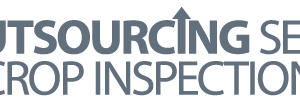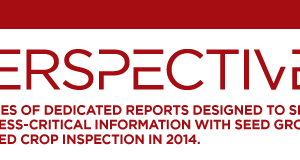Maintaining the Seed Export System
U.S. National Seed Health System keeping the flow of seed exports running smoothly.
Since its inception in 1999, the U.S. National Seed Health System has been striving to set standard seed health testing and inspection protocols. The goal is to further advance the export process of seeds throughout the country in order to aid international trade. The NSHS arose out of the need of the seed industry to move seed internationally to meet world demands at a time when phytosanitary requirements are increasingly used as potential barriers to trade.
“Standardized testing and inspections ensures consistent results between production areas in different states, and removes the uncertainty which occurred when different methods were used in the past.”
|
The NSHS is a program authorized by the United States Department of Agriculture’s Animal and Plant Health Inspection Service. It’s administered by the Iowa State University Seed Science Center to accredit both public and private entities (seed company or other non-government agency) to perform certain activities needed to support the issuance of federal phytosanitary (export) certificates for the international movement of seed.
Once a private or public entity is accredited by the NSHS, they can then conduct seed health testing, phytosanitary field inspections, as well as seed sampling inspections. The results of these inspections and/or tests are then submitted to USDA-APHIS who then issue the phytosanitary certificates. This process offers major logistical benefits to seed companies by eliminating delays in the process of shipping seed lots.
The NSHS also develops new-and-improved phytosanitary testing and inspection methods, and according to Lisa Shepherd, director of the National Seed Health System Administration Unit at Iowa State University, their work is intended to develop the most accurate, consistent and easy-to-use methods for certification. “It’s really helped to speed up the process for companies, they can now internally plan ahead in terms of seed exports and do not have to wait for inspectors,” says Shepherd.
Seed Company Perspective
According to John Stevens, phytosanitary issues manager with DuPont Pioneer, having an accepted set of seed health testing and inspection methods is very valuable to a seed company.
“Standardized testing and inspections ensures consistent results between production areas in different states, and removes the uncertainty which occurred when different methods were used in the past,” says Stevens.
Since the NSHS not only publishes its methods but makes them available to all importing and exporting countries, it removes any doubts among importing countries as to how the seed has been tested. “By publishing its methods, the NSHS can be viewed as a model system for international seed movement and other countries can evaluate and use NSHS methods themselves.”
The ability of U.S. seed companies to become accredited is important to seed production as well as to a company’s research operations. An entity can become accredited in four areas:
• laboratory seed health testing,
• field inspections (of seed crops during growth),
• seed sampling for seed health testing,
• and visual inspection of the finished seed just prior to export.
Stevens notes that with the continual erosion of state and federal resources to provide the services needed by seed companies (or any other exporter), the ability to perform many of the formerly ‘official’ functions (testing, inspection, sampling) means a seed company can expedite exports, often saving as much as two weeks in the shipping process. “For a seed company, [two weeks] can mean the difference in shipping a cargo by boat (relatively cheap) to shipping by air (relatively expensive).
“In addition, by inspecting one’s own crops, a seed company can determine with a greater degree of certainty the eventual plant health status of the crop prior to harvest,” says Stevens. “This helps in inventory management, as well as crop segregation (infested vs. non-infested) and greatly increases efficiencies at the seed plant level and increases throughput.”
Impact on the Industry
Since 2001, NSHS certification has allowed the U.S. seed industry to use the accredited entities to help facilitate and accelerate the issuance of seed phytosanitary export certificates.
In addition to its value to seed production, Stevens adds that the NSHS is also valuable to seed research as the efficiencies it provides also help seed researchers to rapidly move their material between research locations globally to accelerate product development and testing.
Through the NSHS, new testing and diagnostic methods are incorporated into the accreditation program to maintain the program on the cutting-edge of technology. “A number of new testing methods will be released to the industry in early-2014,” says Shepherd. The NSHS also serves as a resource for pest risk assessment and phytosanitary resolution whenever disputes arise that disrupt the international movement of seed.
Shannon Schindle
Accredited ActivitiesActivities for which entities can obtain accreditation by the NSHS include: |
| Further information about the U.S. National Seed Health System can be found at: nshs.iastate.edu/index.html |













